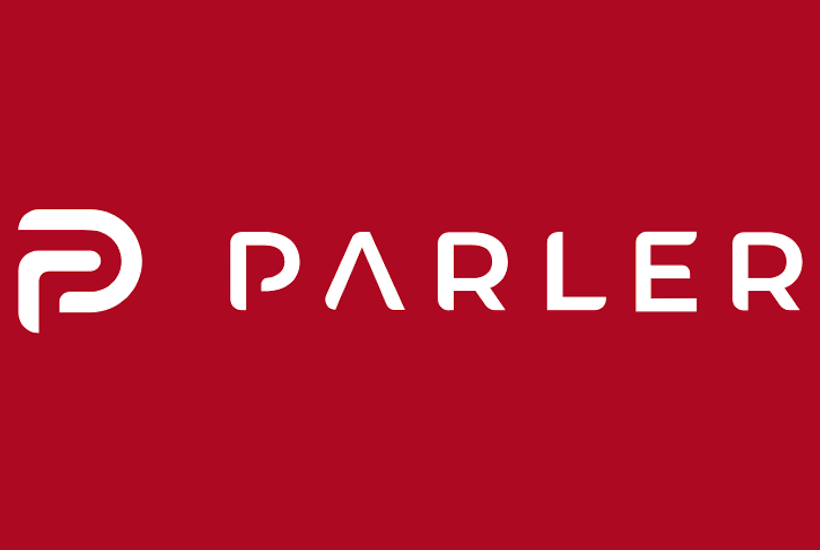Facebook, Twitter and Instagram. The big three of the social media phenomena that has swept the world since the early naughties have finally met their match. Despite boasting billions of users in almost every country, there’s a new kid on the block, and it’s looking like it’s here to stay.
Meet Parler, a social media platform founded in 2018 by John Matze who promotes the newcomer as “the platform that social media should have been when it originated”. Matze, who identifies himself as a libertarian, created Parler to resemble a community forum for all users, free of censorship and politically biased fact-checking.
Over the weekend, the platform gained an astronomical 500,000 additional users, placing it at the top of Apple’s most downloaded news app chart and sending shockwaves through the Twittersphere, who now feel their stranglehold on the social media game begin to slowly slip.
So why the shift? Well, in recent times, we’ve witnessed political correctness on steroids, ludicrous revisionism and extensive virtue signalling from corporate elites, depriving us of the entertainment, products, and services we all once enjoyed. Twitter is not immune from this tirade. Conservative voices are silenced, opinions are suppressed, and unjustified fact-checking is prevalent, leaving only the remnants of a leftist echo chamber where those who differ from the majority are ostracised, censored and even banned from contributing.
This is detrimental to our democracy. Irrespective of your political inclination, the regulation of opinion prohibits the open marketplace of ideas that allows society to progress, develop and evolve. Subjective fact-checking only highlights a distrust in the public’s ability to sift through conflicting information and discern content for themselves. Content from the ever-amusing Christian satirical media outlet Babylon Bee is often censored by fact-checking website Snopes, just demonstrating the platforms lack of humour. Meanwhile, President Donald Trump tweets are fact-checked by Twitter using opinion articles from CNN as opposed to legitimate, objective and unbiased fact-checkers. The censorship bias is extraordinary.
Outspoken Australian politicians like Senator Pauline Hanson and rebel Coalition MP George Christensen, the latter of which is now a user and proponent of Parler, are all too familiar with Twitter’s content censorship, along with many other Australians, frustrated at the platform’s targeting of certain individuals. Alas, an alternative has surfaced.
Parler, which now claims well over one million users, is reminding us all of the power that we hold as consumers to act on our grievances, innovate and force change from elite corporations, who’ve grown so disconnected from the everyday Australian. Within our economy, any business, entity or company is beholden to their consumers, meaning their actions often define the organisation’s profitability and overall success.
For most businesses, this is their reality. The constant demand for the latest product at the best price and most convenient form has entrepreneurs clambering from one idea to the next. Yet, for some time now, there’s been a growing feeling that the oligopolies who dominate the supermarkets, fast food chains and social media platforms are insusceptible to the demands of their market; us as consumers.
Parler rectifies this. If we all think consciously and act boldly, we can be part of something great. We have the chance to pioneer uncharted territory by flocking to this new platform and sending a message to private corporations that we won’t stand for their un-Australian values.
All too often I’m reminded of the inner-Melbourne vegan café Handsome Her, where male customers were charged a premium 18% to represent the supposed gender pay gap. Did the government step in? No. Were laws made to respond to this discrimination? No. It was the people, the conscious café attendees, who utterly rejected the political narrative of this business, causing it to cease operation last year. They simply sought after an alternative, a situation Parler aims to remedy in the coming weeks and months.
But this doesn’t have to be limited to social media. The supermarket duopoly of Woolworths and Coles are two major players who fear conscious consumers and dread the thought of a loss of their market share. Furthermore, the market can be an instrumental tool from the perspective of workers rights. If we become more conscious consumers, we can send a strong message to organisations that may underpay, overwork or unfairly dismiss their employees via boycotts, peaceful protest and by simply finding an alternative.
The key here is competition. Companies fear it, but consumers should cherish it. No law or government mandate can remedy the power of the people if they’re willing to hold companies to account and become conscious capitalists. Of course, private companies are free to set terms as they wish, but that doesn’t make them immune to the consequences of their own actions. It may seem like an uphill battle, but if Parler can take on the big tech giants of Silicon Valley and their billions of users, surely it can be recreated in any industry.
It all starts with you. Make the switch. We all have the chance to be part of something bigger by engaging with that new kid on the block, looking to take down the kingpins that think they run the show. Yet perhaps the most euphoric assessment of all came from Parler CEO, John Matze, who exclaimed “This is our victory as a community for free speech over the tech tyrants. We the people do not want to be told what to think. We reject technofascism and those who think they are the sole arbiters of truth. We reject censorship”.
So, for the sake of conservative opinions, free speech and our very democracy, join Parler. Close the door on Twitter, tell Facebook to get Zucked. We don’t have to abandon these platforms, nor will we see them go into liquidation in the near future, but it demonstrates that we are be prepared to send a message that they aren’t immune to collective scrutiny from everyday Australians. Social media is not going away anytime soon, and the most ethical, effective and efficient form of regulation comes from us: the free market.
Barclay McGain is a writer from the Gold Coast and University of Queensland student. He interns with the HR Nicholls Society and coordinates the Queensland branch of Students for Liberty.
Got something to add? Join the discussion and comment below.
Got something to add? Join the discussion and comment below.
Get 10 issues for just $10
Subscribe to The Spectator Australia today for the next 10 magazine issues, plus full online access, for just $10.


























Comments
Don't miss out
Join the conversation with other Spectator Australia readers. Subscribe to leave a comment.
SUBSCRIBEAlready a subscriber? Log in